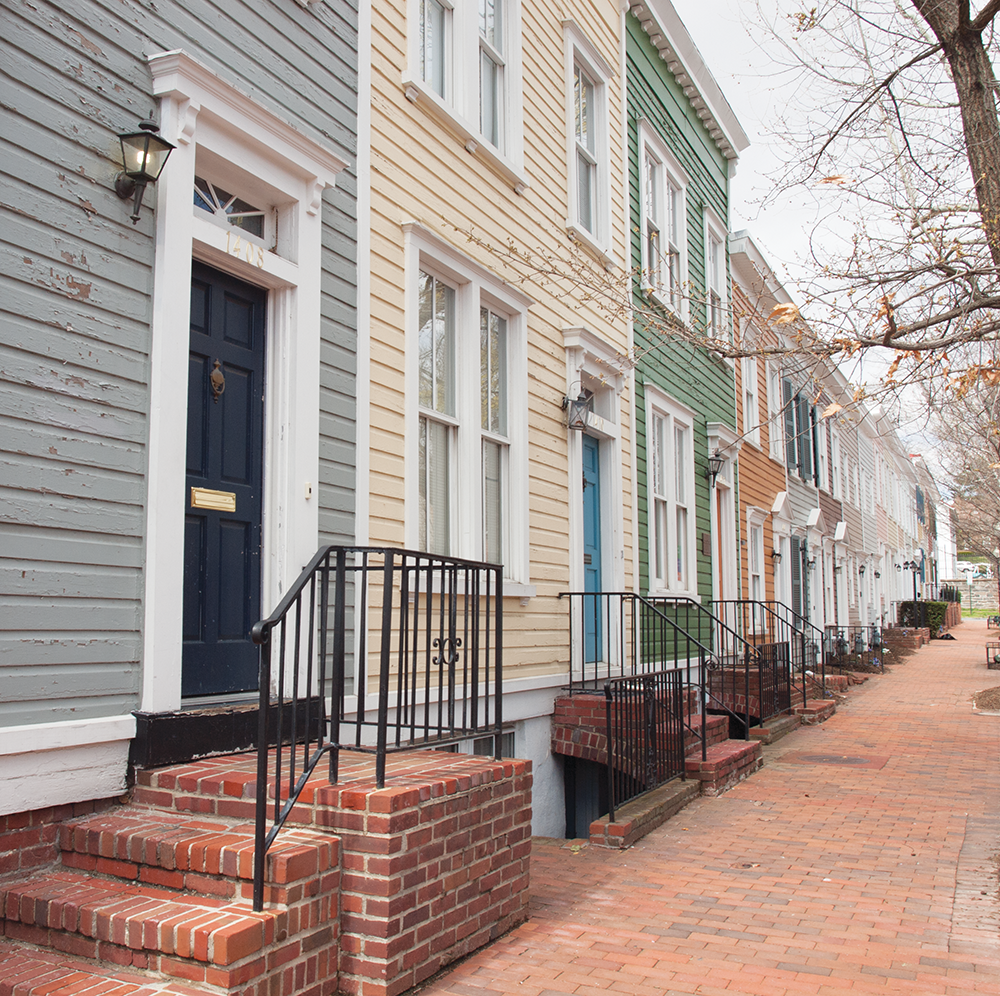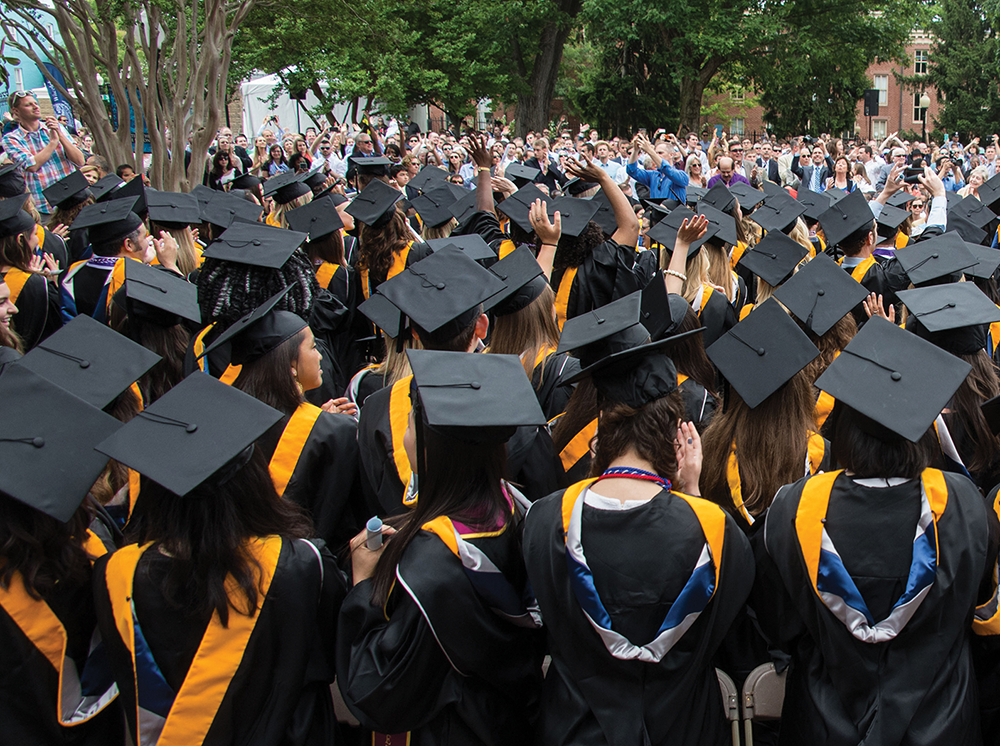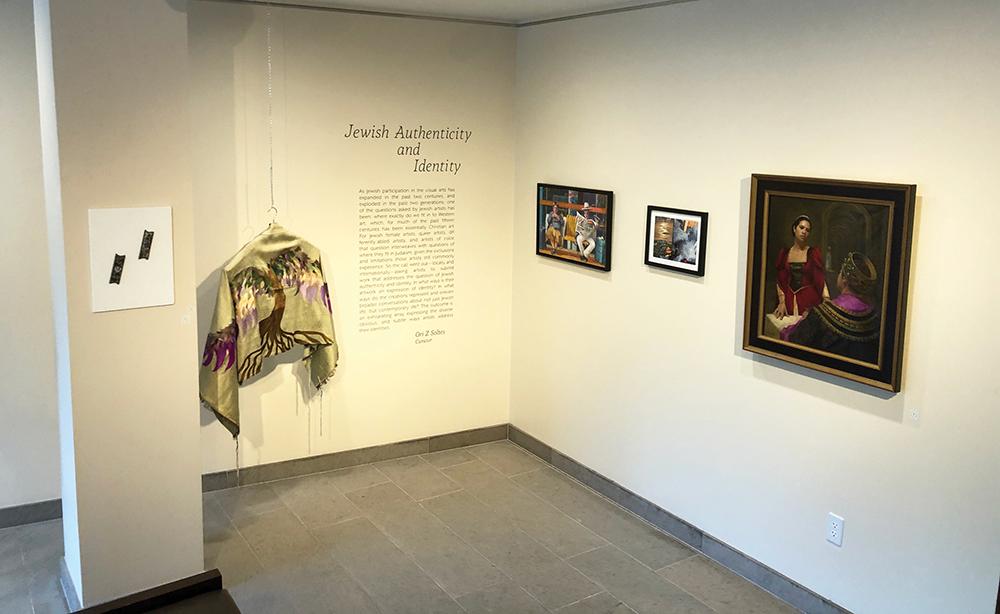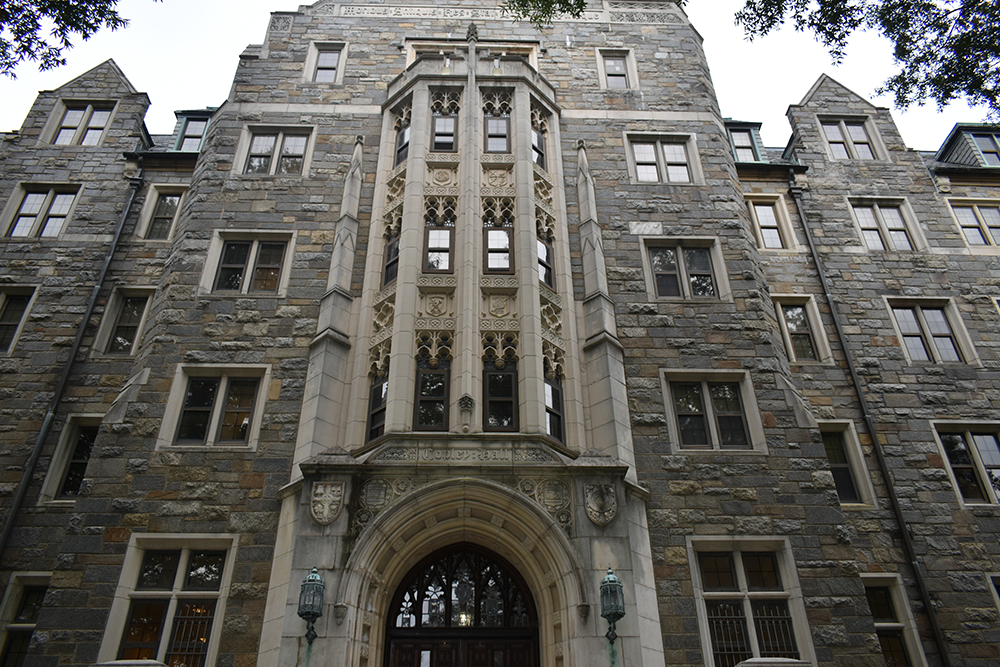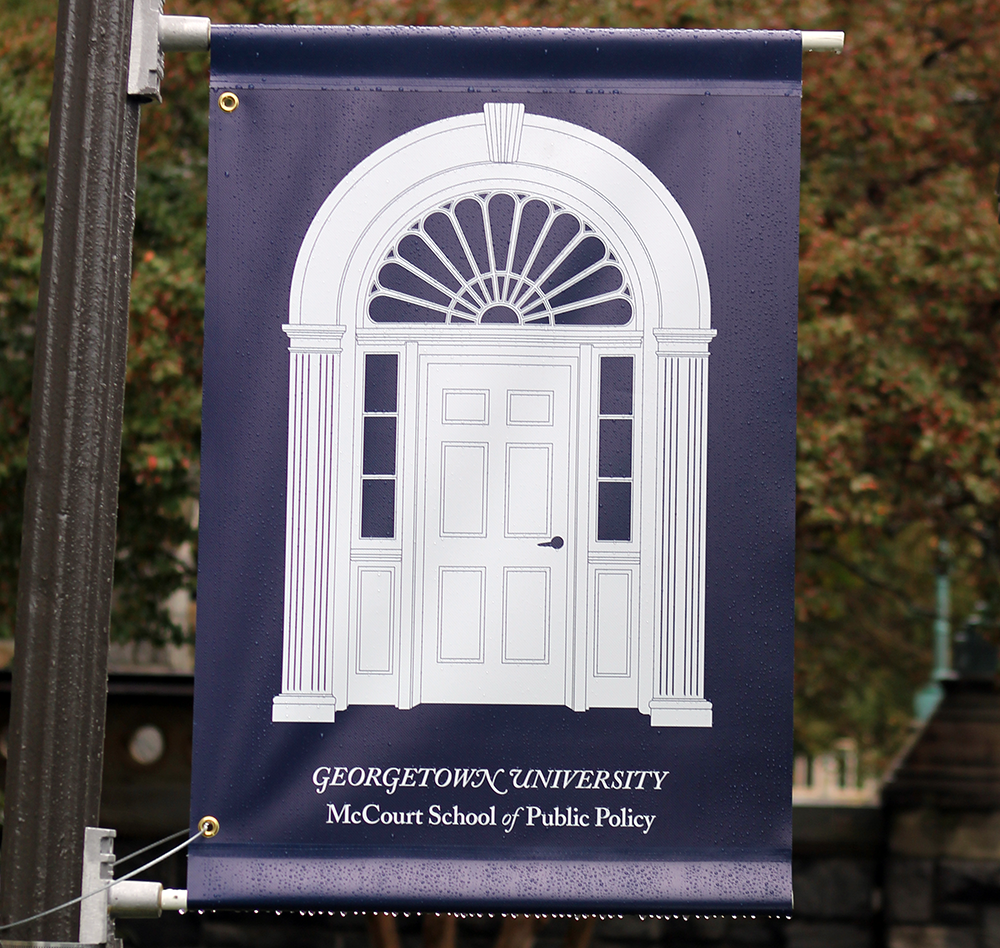The university has not provided the Academic Resource Center the funding and employees it needs to serve the Georgetown University community as the universitywide hiring freeze enters its eighth month, according to student activists in the disabled community.
The ARC provides general academic support as well as special assistance for student-athletes and disabled students. Accommodations for disabled students include extra time on tests, private exam rooms, visually enlarged materials and, since the advent of the COVID-19 pandemic, transcripts of online lectures. After Georgetown initially moved online in the spring, many students reported difficulties accessing the accommodations and expressed concerns about whether they would have accommodations for the fall semester.
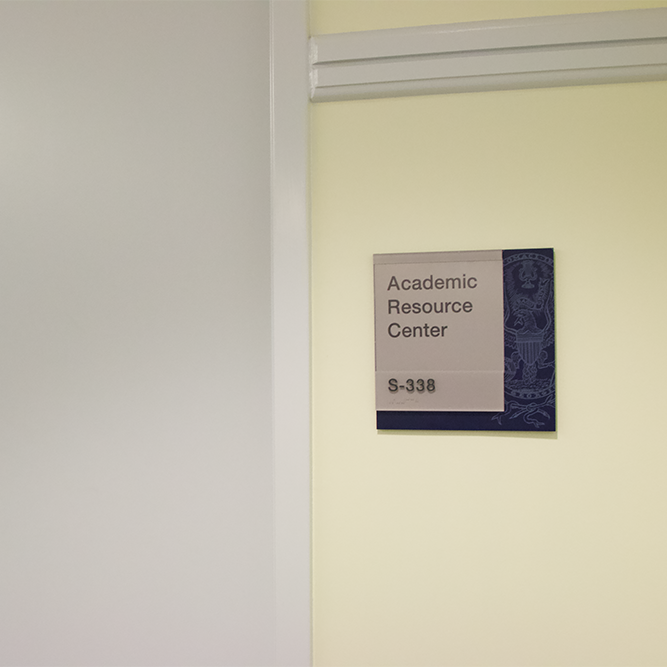
Because the university put a hiring freeze in place to guard against expected financial losses, students say a personnel deficit at the ARC has not been filled for the duration of the pandemic. Activists in the student body admit the ARC does what it can with the limited resources provided.
Gwyneth Murphy (SFS ’23) said she struggled to get her accommodations implemented in a timely manner both in the spring and the fall because the ARC could not equip professors with the right tools to make the switch on their own.
“I had three midterms this week. I didn’t get my accommodations figured out until the morning of each exam,” Murphy said. “And this is not because my professors were anti-disability. It is because they were so utterly confused with how to make the transition.”
With the help of organizations like the Georgetown Disability Alliance and The Center for New Designs in Learning and Scholarship, the ARC has been working with faculty and administrators since March to ensure students are being supported in their accommodations and faculty have the resources to build those accommodations online, according to ARC Executive Director Joseph Fisher.
“To the fullest extent possible, the ARC continues to work with students individually to assess the administration of accomodations in the online environment and to make appropriate adjustments as necessary,” Fisher wrote in an email to The Hoya. “Recognizing the challenges of administering accommodations remotely, the Academic Resource Center, CNDLS and the Georgetown Disability Alliance have created a host of accessibility-related resources to help faculty, and we plan to continue working together on this initiative.”
The ARC should not be faulted for this semester’s shortcomings because they do their best with the limited resources they have, according to GDA Co-Chair of Community, Dominic DeRamo (COL ’23).
“There is an undue burden put on the ARC. I truly sympathize with the pressure they’re under. And the unfortunate reality is that even though the ARC is working every waking minute of the day, accommodation needs are still not being met,” DeRamo said in an interview with The Hoya.
In February 2020, the ARC Associate Director Amy Mullarkey, retired from Georgetown University. Mullarkey’s position, as well as three other positions, remain vacant, according to the ARC website.
“Amy’s position was an absolutely crucial position because even three people are not enough to cater to close to a quarter of the undergraduate population that needs accommodations, let alone medical housing and student athletes,” DeRamo said. “We went from an under-resourced position to an even further under-resourced position.”
DeRamo said that the onus is on the university to give the ARC the resources it needs.
“The only solution that exists because of the Georgetown bureaucracy would be for the ARC to take a more active approach in ensuring that these accommodations are being honored,” he said. “The ARC does not have the time, nor the resources, nor the people to be able to do this.”
Despite the disabled community’s efforts to fill gaps where the ARC is stretched thin by encouraging the university to educate faculty on equitable education, widespread misunderstanding continues, according to Murphy.
“The professors who are really committed to accessibility have been attending accessibility training and doing research on this for months,” Murphy said. “Then there are professors who do not prioritize accessibility. Accessibility in their classroom is not something they’re familiar with. This is our target audience, but they’re also less likely to attend our webinars and check out our website. It’s unfortunate that we have that gap.”
Matt Hua (COL ’22) has also struggled with receiving appropriate academic accommodations this semester. Georgetown’s decision to not require waiting rooms on Zoom, specifically during office hours, is especially problematic for students with disabilities, according to Hua.
“If you’re in the middle of talking to a professor about your situation and someone comes onto the Zoom screen, the conversation comes to a halt,” Hua said in an interview with The Hoya.
As this semester progresses, solving the ARC’s understaffing issue is imperative for student support, according to GDA Advocacy Co-Chair Andrew Bialek (COL ’22).
“Anyone who’s close to disability knows that it’s a very personal experience and very tough subject. Without that personal connection any support is really superficial, at best. We need more staff to be able to help them facilitate this,” Bialek said in an interview with The Hoya. “For an average counselor to have above 400 students is quite impossible. Many students feel like they can’t get to know their counselor. There’s no relationship.”
The lack of support for and within the ARC has been exacerbated by, not caused by, the pandemic, according to Murphy.
“The ARC is doing its best. Joe Fisher is doing his best. Student advocates are doing their best. The Administration and faculty need to meet us halfway,” Murphy said. “Accessibility is consistently treated as an afterthought. We are incredibly understaffed and we are, at the end of the day, fighting against an administration that doesn’t value disabled students to the extent they should.”








